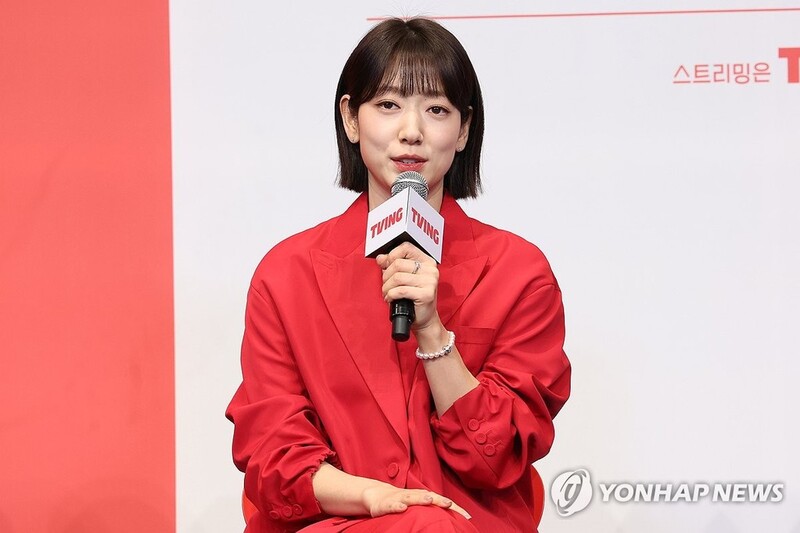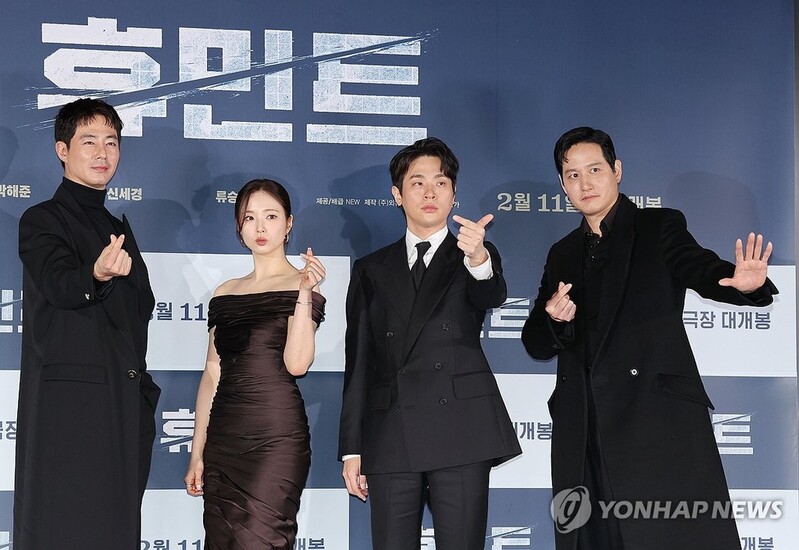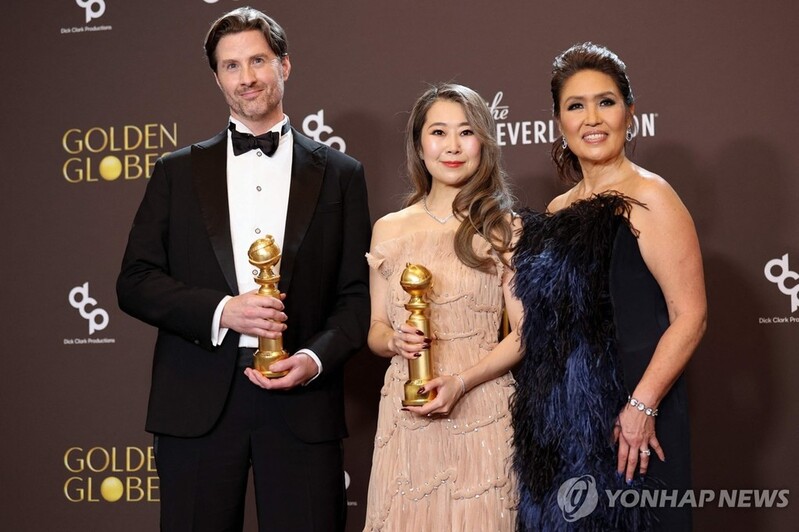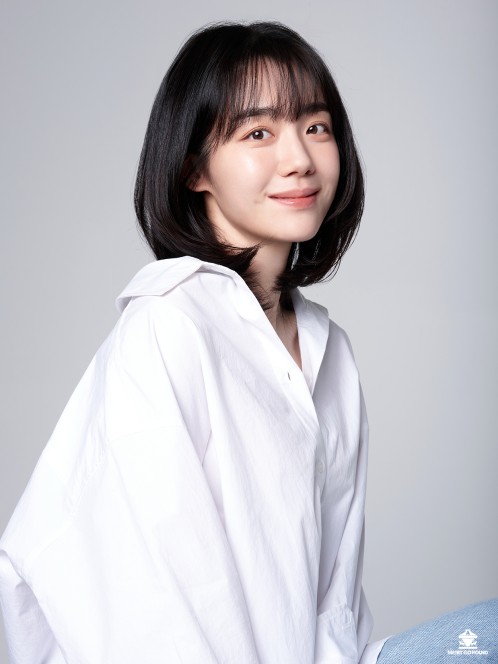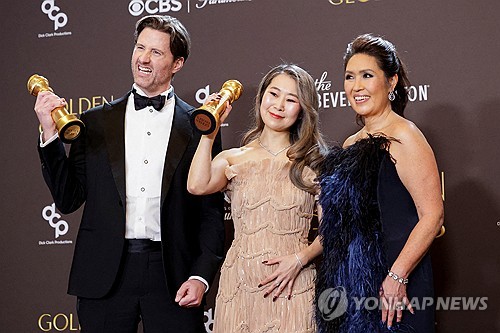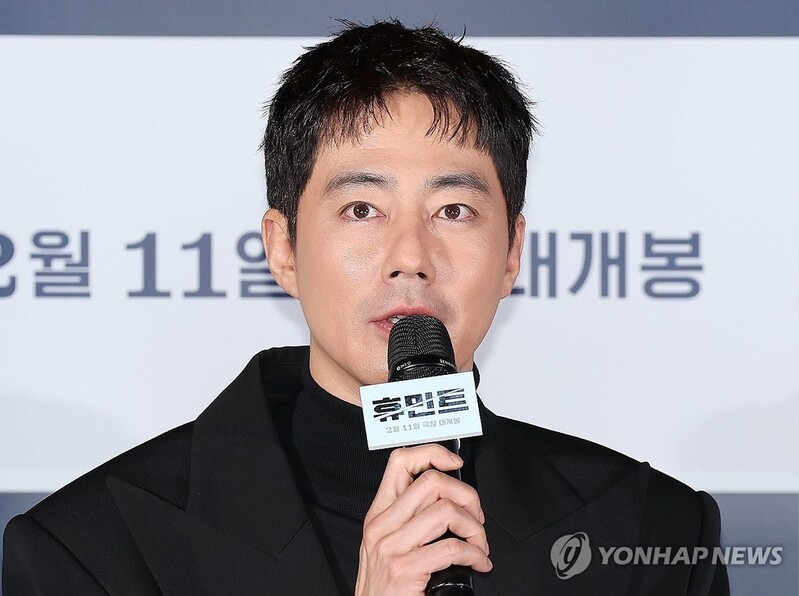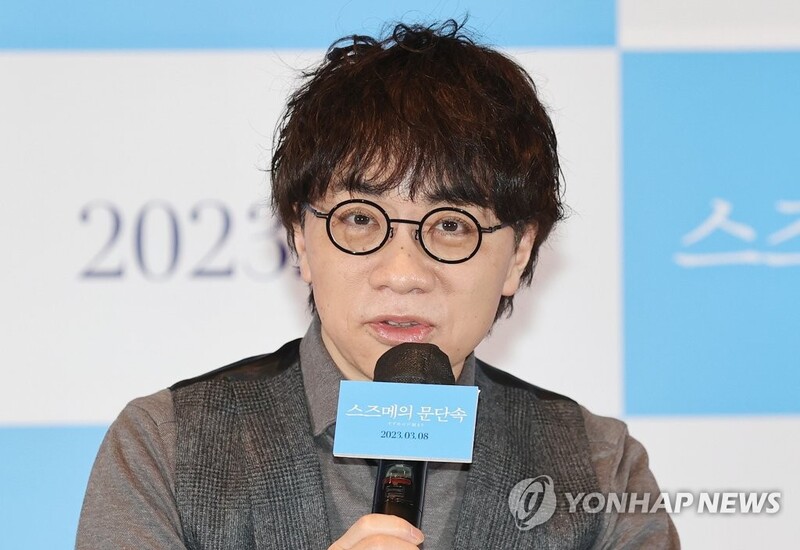 |
| ▲ Director Makoto Shinkai greets at a press conference for the Japanese animation 'Suzume' held at Megabox Seongsu in Seongdong-gu, Seoul on the morning of the 8th. (Yonhap) |
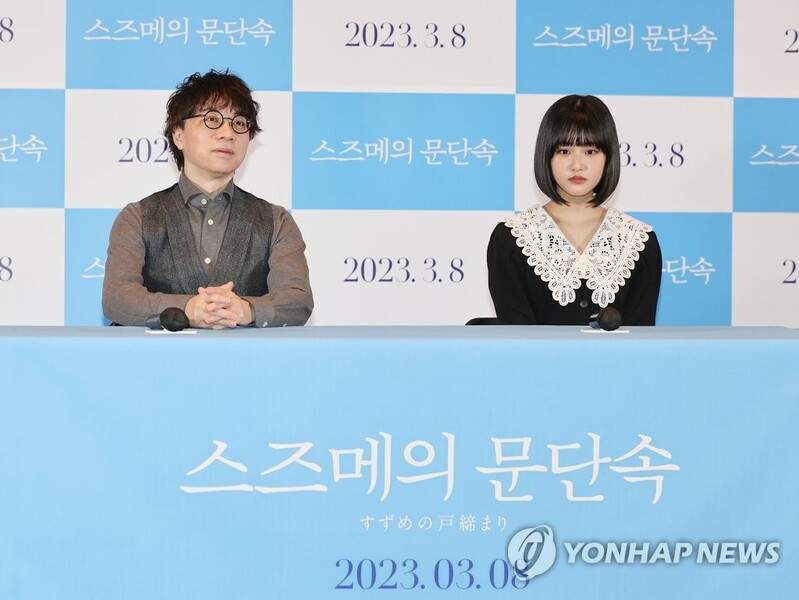 |
| ▲ Director Makoto Shinkai and actress Hara Nanaka, who plays the main character 'Suzume,' are attending a press conference for the Japanese animation 'Suzume' held at the Megabox Seongsu in Seongdong-gu, Seoul on the morning of the 8th.(Yonhap) |
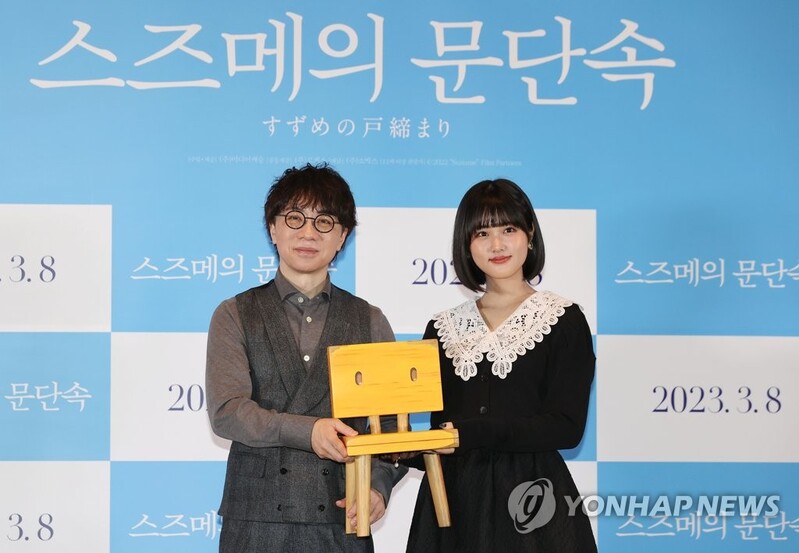 |
| ▲ Director Makoto Shinkai and actress Hara Nanaka, who plays the main character 'Suzume,' are attending a press conference for the Japanese animation 'Suzume' held at the Megabox Seongsu in Seongdong-gu, Seoul on the morning of the 8th.(Yonhap) |
SEOUL, Mar. 8 (Yonhap) -- "I think Korea and Japan have a lot of similar street and neighborhood landscapes. Landscapes are made by reflecting people's minds. I think the form of mind of the Korean and Japanese people is similar."
Japanese animation director Makoto Shinkai, who visited Korea with his new film "Suzume," found the answer in the common characteristics of the two countries on Wednesday as the reason why Japanese animation, including "The First Slam Dunk," is loved by Korean audiences.
At a press conference held at the Megabox Seongsu, he said, "I think Koreans like Japanese animation so much that I want to ask them why they like Japanese animation."
"When I come to Seoul and look at the streets, I feel like I miss Tokyo, and I think this is the future of Tokyo," Shinkai said. "When Korea and Japan are in a political situation, good and bad times are repeated like waves, but I hope the culture will be strongly connected to each other."
"Suzume," which was released on the same day, depicts a high school girl Suzume going on an adventure to close the door to a disaster with Sota, who turned into a chair. The main subject of the work melted into the beautiful visual beauty is “door.”
Citing the Korean drama "Guardian: The Lonely and Great God,” director Shinkai explained, "It was so impressive that I took a hint from it and set the door as the subject of the work."
"I think the door is a 'symbol of everyday life.' Every morning, I open the door and say, "I'll be back," and I close the door and say, "I'm back," and my daily life repeats. However disaster disconnects my daily life. I can say, "I'll be back," but I can’t come back. I thought the motif of the door fit this movie."
In the work, Suzume and Sota are busy closing down the entire Japanese to prevent disasters that will cause enormous damage.
The disaster in the movie symbolizes the Great East Japan Earthquake, which caused the worst damage to Japan in 2011. That's why Sota's legs, which have changed from human to chair, are only three in the film.
Director Shinkai said, "I thought I should take responsibility for the audience after the previous film ‘Your Name.' became a big hit," adding, "I thought if I could forget the Great East Japan Earthquake and convey this memory to people I don't know well when I depict this disaster that gave Japanese a big trauma in the form of entertainment."
Actress Hara Nanaka, who played Suzume's voice in the film, was also present at the press conference.
"I was nervous because I had a lot of thoughts about whether I could do this well," she said. "I was able to do well because the director said 'great' and 'thank you' every day."
Hara picked "Ah," Suzume's repeated one-word line, as the most difficult acting moment.
Regarding this, director Shinkai said, "The line 'Ah' is a line that Suzume says a lot when she realizes something or when she is surprised," adding, "Even if it sounds like the same 'Ah,' it is different every time. I think it would have been hard to express it," he explained.
He also expressed his gratitude to the Korean audience.
"’Suzume’ was made in the middle of COVID-19, and I was anxious whether I could go to Korea when I completed it. Fortunately, I am very happy to come to Korea safely. I hope that Korean audiences will remember that it has something to do with our reality as a movie that depicts our world."
(This article is translated from Korean to English by Yunhee Cho.)
(END)
(C) Yonhap News Agency. All Rights Reserved







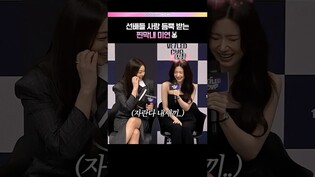


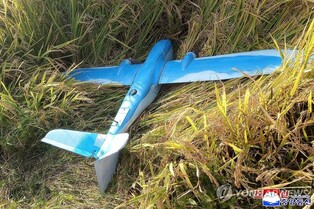
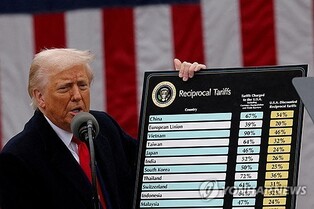

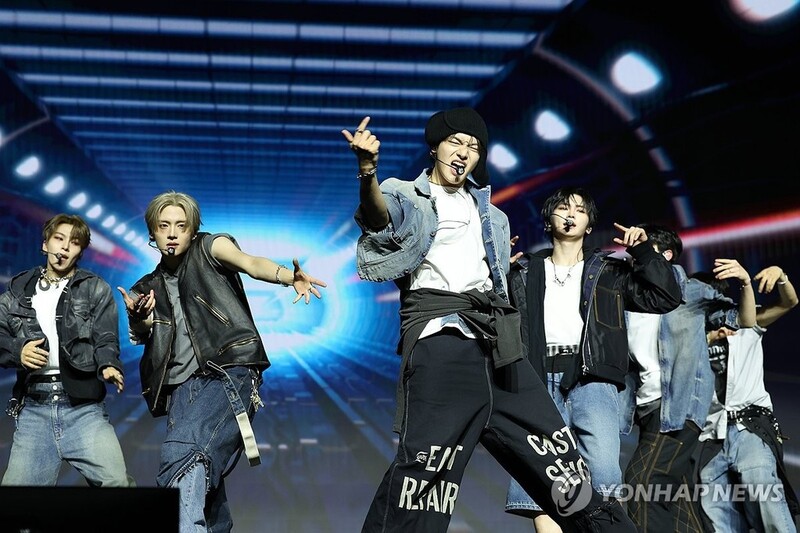
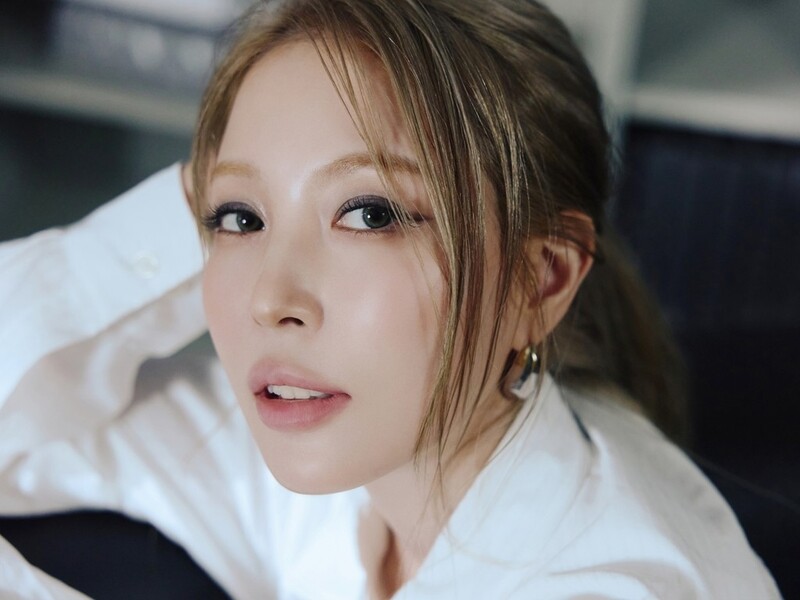

![[가요소식] 지드래곤, 中 QQ뮤직 '올해의 K팝 앨범' 수상](https://korean-vibe.com/news/data/20260112/1768207788_yna1065624915979655_960.jpg)

